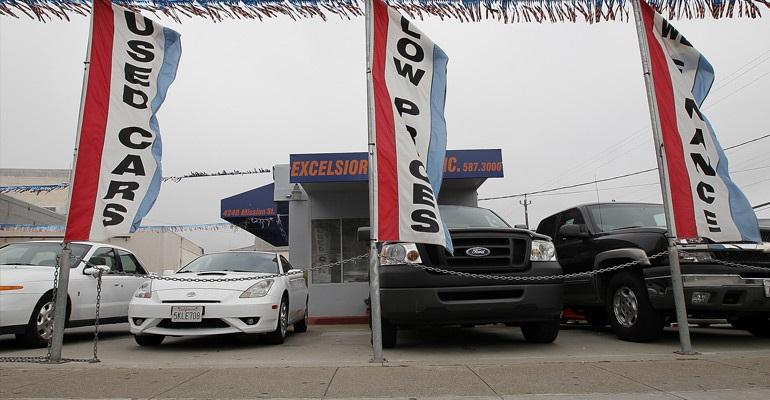Strong demand for used vehicles kept their prices up in 2018, but that could change this year if income tax refunds are not as much money as previously, says Jonathan Smoke, chief economist for Cox Automotive.
Issues related to potentially delayed and smaller 2019 tax refunds are a “major concern,” he tells journalists, analysts and bankers during a teleconference on the latest Manheim Used Vehicle Value Index.
The current government shutdown could slow down the speed in which the IRS processes tax returns, Smoke says.
Although the tax filing season doesn’t officially begin until the end of January, millions of people who are anticipating tax refunds usually file earlier than later.
Last year, when federal tax cuts took effect, the IRS received more than 154 million returns and issued an average refund of about $3,000. More than 100 million Americans got tax refunds based on the amount of earnings withheld.
But that could change this year, says Smoke, noting that although the IRS posted new withholding tables, many taxpayers didn’t make necessary adjustments. Consequently, the percentage of taxpayers with under-withheld wages is expected to increase and the amount of people who have over-withheld – and are entitled to tax refunds – is expected to decrease.
“People could get smaller refunds than expected, no refunds at all, or worse, find out they owe tax money,” Smoke says. “People weren’t making changes in withholding income to correspond to the new tax tables.”
Various analyses indicate many people didn’t do that, and taxpayers expecting hefty IRS refunds could be “surprised,” he adds.
That could hurt used-car sales and prices because the market seasonally depends on many consumers, armed with tax refunds, buying pre-owned vehicles.
“The tax refunds play a big role in the used-car market,” Smoke says.
Typically, “price increases usually happen in the spring when tax refunds come in,” Smoke says. “The most appreciation is with affordable cars. No question, affordability has played a big role in the market.”
Used-car values took a roller-coaster ride last year, but overall increased, according to data from Manheim, a Cox company specializing in auto auctions and remarketing services.
Year-over-year used-car price performance has been much stronger than average over the past 12 months, says Zo Rahim, Cox’s manager-economics and industry insights.
The Manheim Used Vehicle Value Index in December was 137.6, a 4.3% increase from a year ago.
U.S. consumers purchased about 40 million pre-owned vehicles in 2018.





